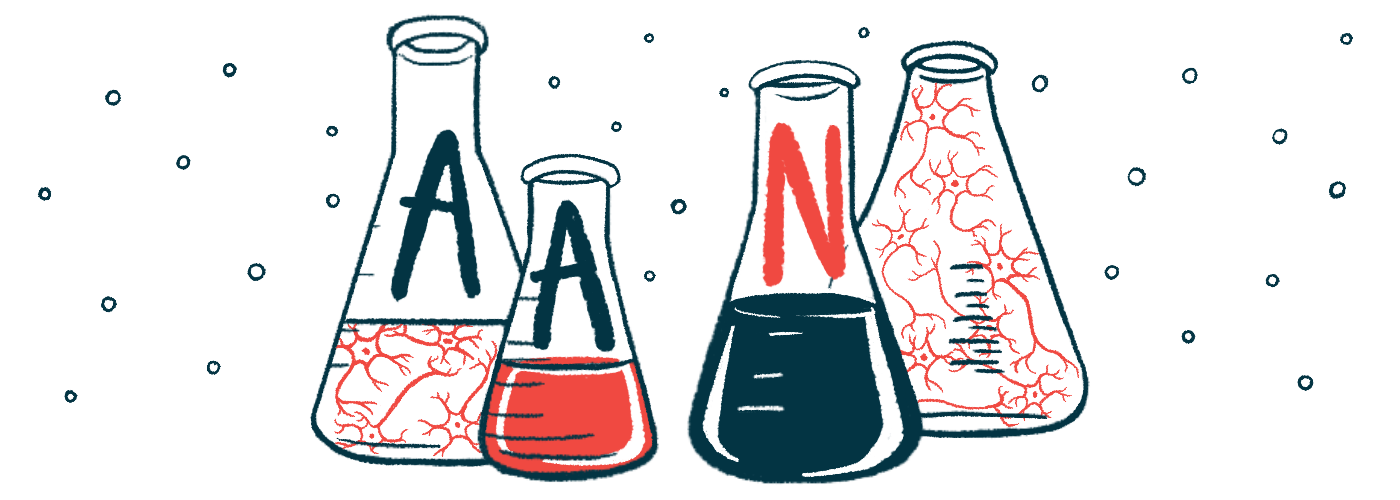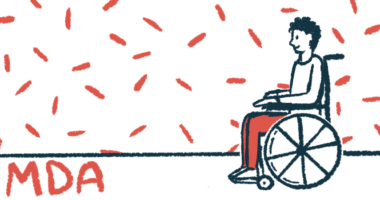AAN 2023: Long-term losmapimod preserves patients’ arm function
People with FSHD showed no worsening in clinical trial after 2 years

After two years of treatment with losmapimod, people in a clinical trial with facioscapulohumeral muscular dystrophy (FSHD) showed no upper limb function worsening.
Leo Wang, MD, PhD, of the University of Washington, presented the findings at the American Academy of Neurology (AAN) annual meeting in the talk, “Results from 96 Weeks Open-Label Extension of a Phase 2 Trial of Losmapimod in Subjects with FSHD: ReDUX4.” The work was funded by losmapimod’s developer Fulcrum Therapeutics.
Losmapimod is an experimental oral therapy designed to reduce activity of the DUX4 gene by blocking the p38 alpha and p38 beta proteins. In FSHD, the gene’s overactivity leads to muscle damage that drives disease symptoms.
Fulcrum is running a Phase 3 study called REACH (NCT05397470) to compare losmapimod against a placebo in about 230 people with FSHD. The study is recruiting participants in the U.S., Canada, and Europe.
“Losmapimod is the most advanced development candidate for the treatment of FSHD,” Wang said.
The Phase 2 trial ReDUX4 (NCT04003974) enrolled 80 adults with FSHD who were given losmapimod or a placebo for about a year. The study failed to meet its main goal of showing the treatment could reduce DUX4 gene activity in muscle cells.
One-year data showed patients given losmapimod had significantly better scores on reachable workspace (RWS), which assesses the range of motion with the arms and hands, however.
“The reachable workspace has been correlated with abilities to perform activities of daily living such as eating and self-care,” Wang said.
Previous data showed losmapimod-treated patients also had less fat infiltration in their muscle cells (a marker of muscle degeneration), along with some improvements in muscle function and strength.
Minimal changes, gains in RWS scores
At the end of the year-long placebo-controlled study, 76 patients entered into an open-label extension, where all are being treated with losmapimod and monitored for long-term outcomes. All but two continued in the extension study for at least 48 weeks (about a year), for a total of nearly two years.
“This study is probably the longest study of patients who’ve been exposed to this drug losmapimod,” Wang said.
Long-term findings showed no new safety signals related to treatment. Less than a third of the trial participants reported any side effects related to losmapimod. Most of them were rated as mild and none have been serious.
The most common treatment-emergent adverse events were fall, headache, cold-like symptoms, fever, and pain in the back, extremities or joints.
“The thing that’s really reassuring to me is that the safety profile has been really consistent,” Wang said.
Among those taking losmapimod for the entire study, the average RWS scores on the dominant arm showed minimal change over two years, while nondominant arm scores improved by about 5%, on average.
Those given a placebo in the original trial saw their average RWS scores for both arms worsen gradually over the year, but stabilized or improved slightly once they started active treatment.
The data “supports the finding that losmapimod modifies disease progression and shows durability and maintenance of effect,” Wang said, noting RWS has been selected as the main measure to test losmapimod’s effectiveness in the ongoing Phase 3 REACH study, based on these data.






